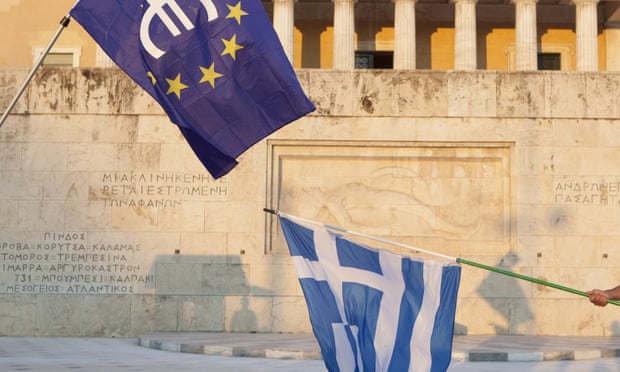
The arrival in a week of more than 9,000 refugees in the Greek islands highlights the fact that Greece’s euro drama is being played out in a turbulent neighbourhood. “I have no doubt this will affect Europe, also in a geopolitical sense,” Donald Tusk, the president of the European council, told the European parliament this week.
But how?
In a sense, geopolitical considerations may already have played a role. According to someone who had extensive dealings with Alexis Tsipras before he became Greece’s prime minister, he has an unshakeable belief the EU would not dare let his country go, due to its strategic importance. That could help explain his audacious brinkmanship.
Though membership of the EU does not require adoption of the euro, “legally, if a country wants to exit the eurozone, it has to exit the EU”, said Angelos Chryssogelos, a fellow in the European programme at Chatham House. Like most other analysts, he believes the politicians would find a way to keep Greece in.
But, said Patrick Keller of the Konrad-Adenauer-Stiftung (KAS) in Berlin: “I think strategic tensions with Greece will kick in even if it only leaves the euro.”
For a start, a significantly poorer Greece would become a weak link in Nato. It is one of the few countries in the alliance that complies with a requirement to spend at least 2% of GDP on defence. But if it were to be economically crippled, “its participation in multinational missions under Nato’s aegis would be severely limited or withdrawn altogether”, said Thanos Dokos, the director general of Greece’s international relations thinktank, Eliamep.
Keller, KAS’s co-ordinator for foreign and security policy, agreed. “In German security circles, we usually see [the effects of ‘Grexit’] in terms of the fragmentation of Nato’s south-eastern flank, given that Turkey is already a tricky ally, but also in terms of whether [Vladimir] Putin would take advantage of the situation.”
Tsipras has repeatedly drawn attention to Russia’s potential role with visits to Moscow and apparently chummy meetings with the Russian president. But Russia’s economy has been hit hard by sanctions and falling oil prices, and Putin has so far been reluctant to go much beyond supportive declarations. Most analysts regard the prospect of Russia stepping in to the EU’s shoes as a remote one.
“Russia does not have the wherewithal to bankroll a developed economy that needs billions of euros,” argued Chryssogelos.
Keller is unconvinced. He notes the turmoil in Syria had severely limited Russia’s ability to use its naval base at Tartus on the Syrian coast, and that Moscow might see financial support for a stricken Greece as a worthwhile investment if it secured it access to a Greek port. “From Moscow’s perspective that is a very reasonable thing to ask for,” he said.
The US has an extensive naval, air and missile facility at Souda Bay in Crete, which is vital to its potential for intervention in the Middle East. But even though Tsipras’s government is a coalition of leftwing radicals and rightwing nationalists, it has so far given no indication that it intends to challenge that arrangement.
For its part, the US has played an active, and – from the Greek coalition’s standpoint – supportive role in the crisis. If Greece is forced out of the eurozone, “I think the anger will be directed to Europe and not the US,” said Dokos.
Fears have been raised in the American media that a distressed Greece could add to the chaos in the Middle East. Thomas Wright, a fellow at the Brookings Institute, said US policymakers were more concerned about its potentially disruptive influence in the Balkans.
Chryssogelos agreed that this was the most underappreciated aspect of the crisis. Several countries in the Balkans were having problems with democracy and the process of EU enlargement in the area was at a standstill. “If Greece were to leave the eurozone, these countries would lose their principal sponsor and they could drift further away from the EU,” he said.
The mood in Washington, Wright added, was one of dismay. There were fears that, whatever the outcome of the present crisis, the evidence it had brought to light of the EU’s failings would prompt “a long period of introspection in Europe that will not leave bandwidth for other things”.
He added: “The US has been central to previous default crises, particularly in Latin America, and it has made a lot of mistakes. But it has learned from those mistakes that you have to do things that are counterintuitive.”
US policymakers were appalled, for example, to see the European Central Bankusing cash shortages to exert pressure on the Greek government.
“The feeling here is that that is pretty dangerous; that they are playing with fire,” Wright said.
by John Hooper
sourche: http://www.theguardian.com/world/2015/jul/10/greece-euro-drama-geopolitical-concerns-europe-eu
Δεν υπάρχουν σχόλια:
Δημοσίευση σχολίου